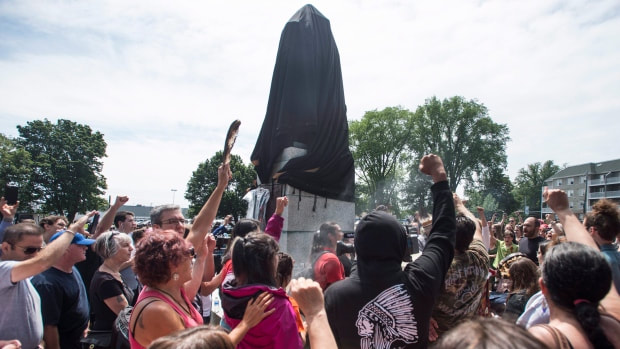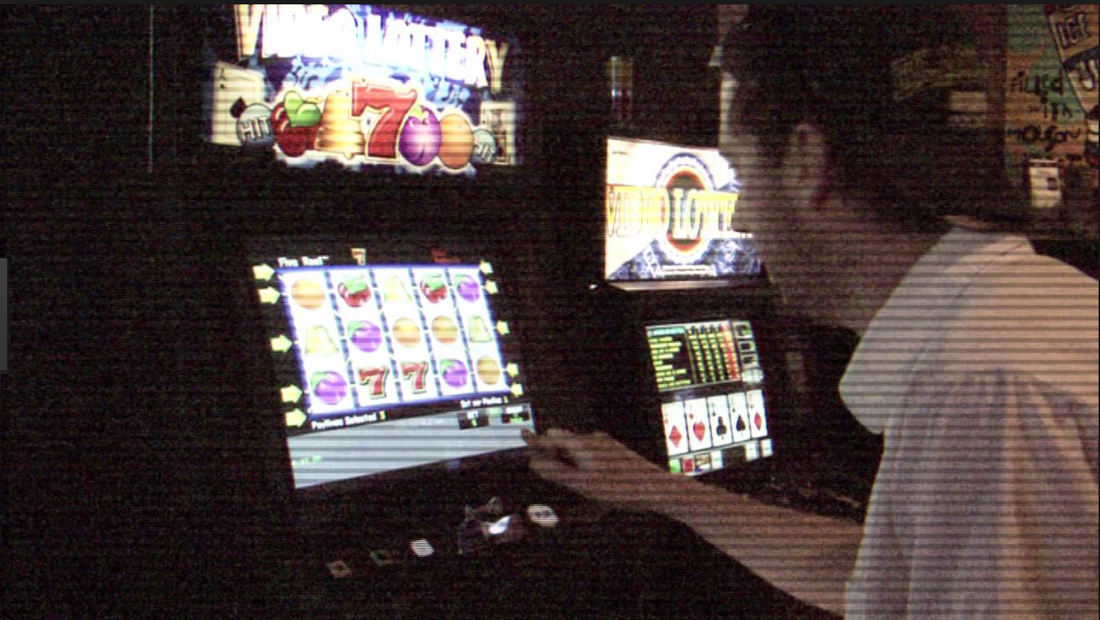|
What's the most beautiful neighbourhood in Halifax?
Is this a question of opinion, taste or preference? Is your neighbourhood the most beautiful to you? Does the market price beauty? When it comes to neighbourhoods is beauty in the eye of the beholder? Here's the ultimate history lesson... everything was worse before. My father used to say that he could remember when The Good Old Days were called "These Trying Times". Today a cannonball crashed from history into modern Quebec city. A live round from 1759 was uncovered in the city by work crews. An artifact of a half forgotten war. Nothing could more forcefully impose itself on the present than a live bomb. Nothing could be a more stark reminder that the past was fundamentally different - worse - than our present. CBC Image from July 15th Protest The importance of retaining historical ideas within their context is crucial to reading and interpreting the past. Some of the most important memorials are formed by freezing the frame of a lived moment of history. Jewish concentration camps, left as they were, remote and silent, are a chilling reminder of Nazi horror; Nelson Mandela’s prison cell on Robben Island says more about his incarceration and resilience than any exhibit. The 'feedback loops' of history are also worth recording and remembering. In Halifax today we're having an interesting discussion about how to think about statues of historic figures like the modern city's English founder Edward Cornwallis. This week the Halifax Examiner published an interesting article that investigated the public narrative view of the 1931 erection of the statue of Cornwallis. When Cornwallis School was similarly renamed I couldn't help but think about the builders of the school in 1948, then men and women who where just beginning to see the light after a decade of war and its aftermath darkened the world. They built the school as a living temple to the thing they believed would solve the problems of the past and point the rising generations - us - to a better future... Education. They weren't vexed by the Cornwallis issue. He was simply and uncontroversially named the founder of their town which they loved. Today the elite who set our public narrative and provide the content for others to read look on the people of 1759, and 1931, and 1948 as benighted fools; people disconnected from the knowledge, the moral and ethical superiority we all have simply by virtue of our place in the present. The truth is much has been lost. We are the disconnected ones. We're separated not just from our communities but from the spiritual and natural world around us; we've not been educated in the fundamentals of reason, logic, argument that would have made occasions like the discussion of the Cornwallis statue opportunities for improvement. Without the ability to argue we end up with argument's poor cousins - fussing and fighting, and worse, political 'slow walks', a new type of discourse that breaks down responsibility and accountability into small forgettable pieces over a long timeline and layered bureaucracy so that decisions are made but no one is actually responsible for making them or accounting for their meaning. In this world the citizens aren't easily lead, they simply choose not to believe or think anything at all. They are disenfranchised, disappointed, discouraged and disconnected. Nothing could mater less to them than history or the shape of things to come. Talk of the legacy of the past and human destiny leaves them cold. They remain detached from everything of the past nd future that could make them whole. What's the most important thing we can learn by arguing about the past? The answer is simple. It was well known by the people who we so easily look down on today. In generations past any school kid could have told you the answer and ricited a little Aristotle to poetically support it. Argument has tense: past, present and future. According to Aristotle, all arguments boil down to just three issues: Blame, Values and Choice. For example, “Did Cornwallis order scapling?” is about blame, “Is the statue offensive?” is about values, and “Should take the statue down?” is about choice. These three kinds of arguments are each associated with a different verb tense. If you understand tense you understand a lot about argument, others, and the world. Blame = past tense Values = present tense Choice = future tense It’s important to focus on the type of argument – and the tense – that will achieve your ultimate goal. For example, the past tense is what you use to determine “whodunnit”, to apportion blame and mete out punishment, while the present tense is great for getting your audience to unify behind a particular belief, identify in a certain way, or judge something as good or bad. If you want to come to a joint decision about something, however, you need to focus on the future – the kind of argument Aristotle called “deliberative”. Deliberative argument is the most pragmatic, productive and interesting because it helps build our future together. Arguing about the past is the most difficult and quarrelsome... that's why we have police, courts, lawyers, judges, and prisons. One way we can improve the quality of public argument is to actively agree on the tense and try to focus on the future. We can go from blame to choice by saying “What should we do about it?”, “How can we keep it from happening again?” or “These are all good points, but how are we going to…?” It's pointless to wish for a better past. That's the root of most of the world's bitterness. But think of any language, anything you can say about working for a better shared future. It almost always sounds sweet. Neo-Folkie Dan Bern wrote the most poignant verses I know about the conceit of judging the past. God Said No The past is cherry picked and treated horribly by those who find power in divisiveness and bitterness. It should be resisted. The political armchair quarterback. The clearness of hindsight. These are poor populist arguments. So, if we don't get much out of arguing about the past, if we can't change it, what's it good for? In Dan's song he realizes the significance and power of time as nature (God's) ultimate tool. Time, like argument, beauty, and death, is something we don't choose to take the opportunity to think about often enough. We are less than whole and life is less for it. One of my favourite writers, thinkers, leaders and managers, Adm. H.G. Rickover USN, wrote most clearly about the past. "We need to regain some of the certainties of the past. For the uneasiness and the malaise of our time is due to a root cause: In our politics and economy, in family life and religion, in practically every sphere of our existence the certainties of the 18th and 19th centuries have disintegrated or been destroyed. Much of the social cement that has held our society together - shared values, strong family structure, the influence of the church and the local community - has been dissolving steadily over the years. At the same time, no new sanctions or justifications for the new routines we live, and must live, have taken hold. So there is no acceptance and there is no rejection, no sweeping hope and no sweeping rebellion. There is no real plan of life. Many certainties of the past have been lost through ill-founded criticism of past customs and institutions. It is easy in the light of present-day knowledge and achievement to ridicule and condemn the men, the ideas, and the customs of a past age. But this is a mistake. Much of the wisdom and most of the beauty of the past is lost because we do not have sufficient knowledge and imagination to divest ourselves of our modern refinements and to relive the struggles, the hopes and fears, and faiths and beliefs of our ancestors who were in contact, like us, with the mystery of life." I would urge a more sympathetic understanding of the past, so that we may recapture some of its beauty. Certainly, some of the past is not worthy of preservation. But much is. In nature, the demolition process is a living process; the destruction of the old is caused by and is part of the generation of new life. In all areas of our existence, the present is the fruit of the past and the seed of the future. It is ourselves who, for all our cleverness and intellectual development in temporal matters, are nevertheless plunged in darkness and ignorance about our own nature, the invisible world around us, and the eternal spiritual verities. The opporutnity here is concious conversation with shared understanding about what argument is, what it is good for, what it can do - blame, value, and choose, and how we can use it to improve ourselves and our community. Nova Scotia releases its annual report on gambling... well... not really... they call it gaming and as an accounting document it is woefully short on truth. |
John Wesley
Writing about life, citizenship, and Nova Scotia. Archives
June 2020
Categories
All
|


 RSS Feed
RSS Feed